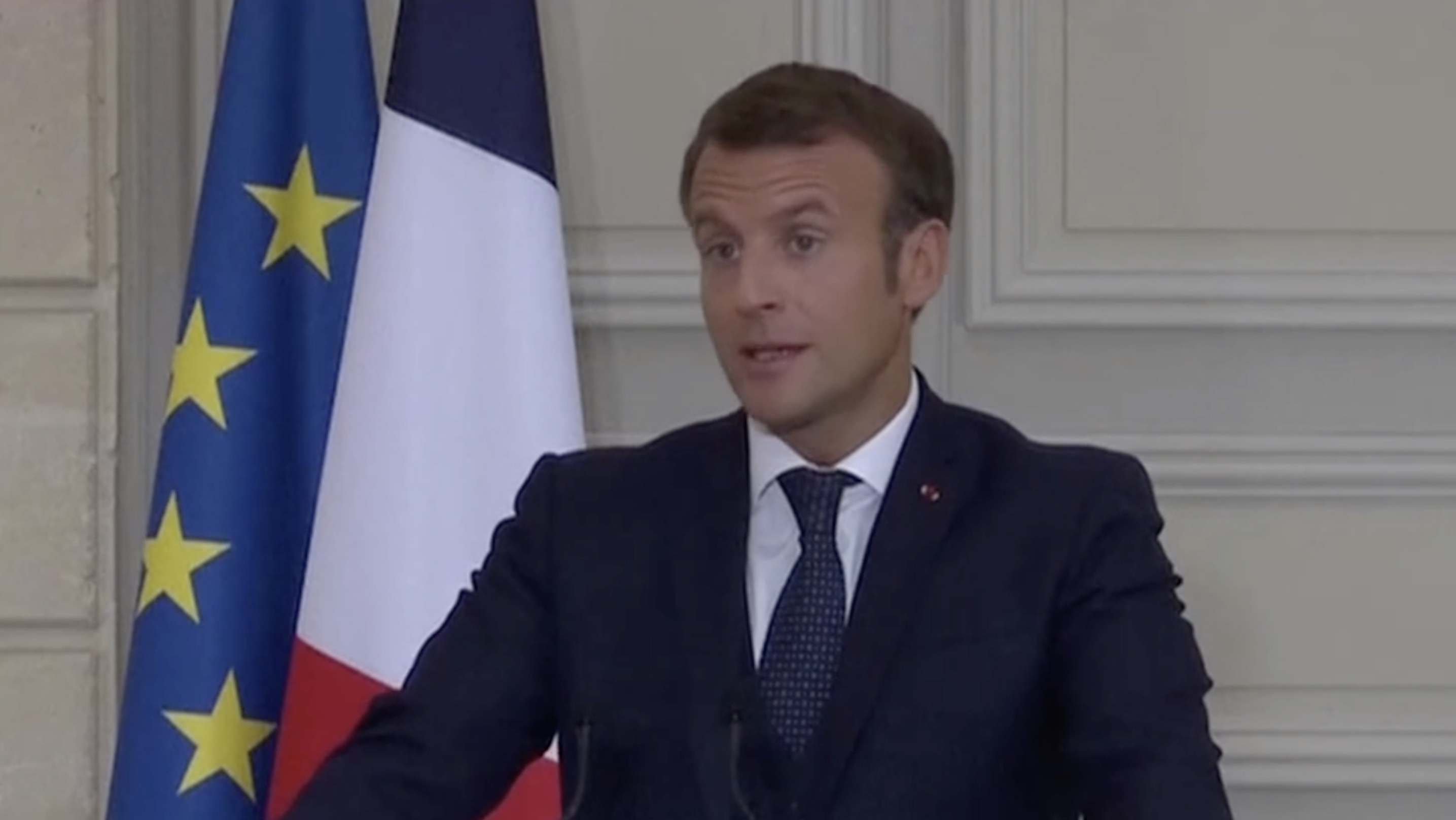00:56

French President Emmanuel Macron reprimanded Lebanon's leaders on Sunday for serving their own interests ahead of their country and vowed to push ahead with efforts to prevent chaos, but appeared to have no backup plan should his initiative fail.
Lebanon's prime minister-designate, Mustapha Adib, quit on Saturday after failing to line up a cabinet consisting of independent technocrats, dealing a blow to a French plan aimed at rallying sectarian leaders to tackle the country's crisis.
"I am ashamed of Lebanon's political leaders," Macron told a news conference in Paris. "The leaders did not want, clearly and resolutely, to respect the commitments made to France and the international community. They decided to betray this commitment."
Adib was picked on August 31 to form a cabinet after Macron's intervention secured a consensus on naming him in a country where power is shared out between Muslims and Christians.
That the diverse sectarian parties clash over cabinet lineups has been a common scene in Lebanon. Previous governments have all encountered similar difficulties and constantly failed to fill the ministries with non-partisan technocrats.
For the first time, Macron also specifically questioned the role of the heavily-armed Hezbollah and the influence of Iran, saying that the group needed to lift its ambiguity on the political arena.
Hezbollah is designated by a number of European Union member states as a terrorist organization. Both Germany and France previously differentiated the movement's military factions from its political factions, giving that designation only to the former. But Berlin has recently changed course, leaving France the only EU power that does not recognize Hezbollah as a terrorist group in its entirety.
"Hezbollah can't be at the same time an army at war with Israel, an unrestrained militia against civilians in Syria and a respectable party in Lebanon," Macron said, but noted that he saw no evidence indicating Tehran's interference in his initiative.
A Shiite Islamist party in Lebanon, Hezbollah has a sizable share of seats in parliament and plays an important part in the government.
"Is it really a political party or does it proceed just in a logic dictated by Iran, and its terrorist forces? I want us to see if in the next few weeks something is possible. I'm not naive."

A supporter of Lebanon's Hezbollah gestures as he holds a Hezbollah flag in Marjayoun, Lebanon, May 7, 2018. /Reuters
A supporter of Lebanon's Hezbollah gestures as he holds a Hezbollah flag in Marjayoun, Lebanon, May 7, 2018. /Reuters
Under the French roadmap, the new government would take steps to tackle corruption and implement reforms needed to trigger billions of dollars of international aid to fix an economy crushed by a huge debt.
But there was deadlock over a demand by Lebanon's two main Shiite groups, Amal and Hezbollah, that they name several ministers, including for finance, who will have a big role in drawing up economic rescue plans.
Macron, who also took a swipe at leading Sunni Muslim politician Saad al-Hariri, criticized both parties for blocking efforts to form a government by a mid-September deadline.
The French president said he would convene international partners within 20 days to assess where his efforts stood and hold an aid conference by the end of October.
Describing the events of the last few days as a betrayal, he said political leaders had chosen "to deliver Lebanon to the game of foreign powers," destabilizing the region further.
He warned them that they had 4-6 weeks to play ball. When asked whether sanctions were on the table, he said he would only consider them at a later stage in conjunction with other powers because he could not see their use for now.
"This is a system of terror. This system is no longer advancing and a few dozen people are bringing down a country and its people," Macron said. "The French initiative will persist. My commitment ... will not falter."
Lebanese have long been calling for a comprehensive overhaul of the sectarian, quota-based political system that they believe nourishes cronyism and patronage networks. The same system is also a reason why parties representing sectarian interests can often block prime minister-designates' cabinet nominations. But no politician has taken actions to meet the public demand, nor has Macron.
What does France's Lebanon complex mean for Lebanese?
(With input from agencies)